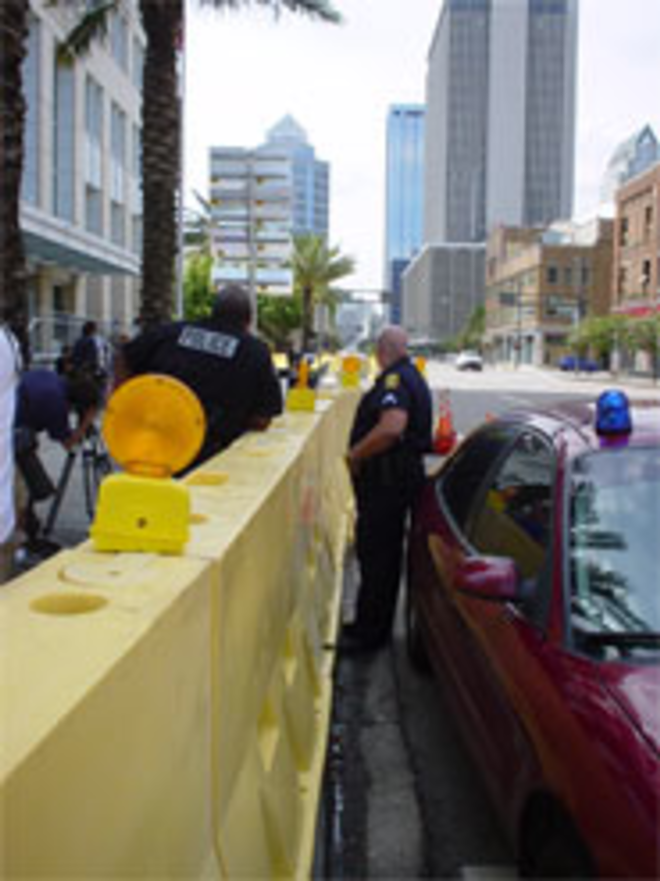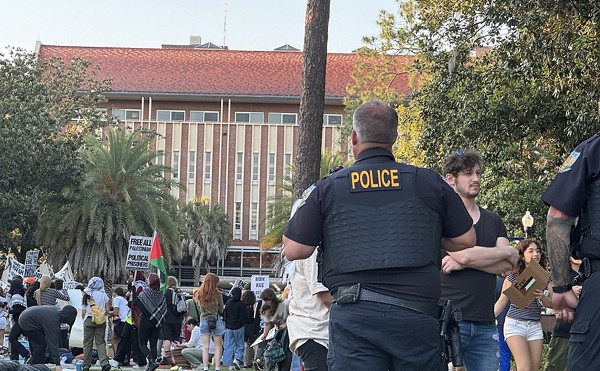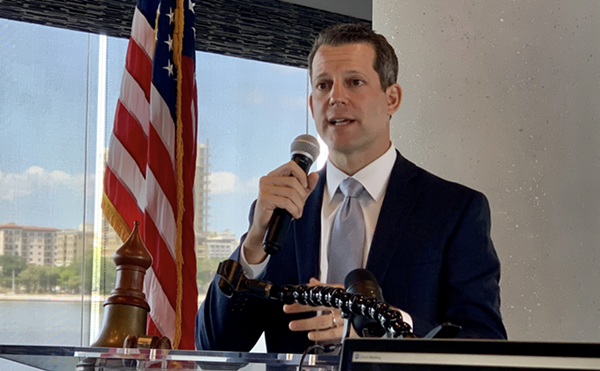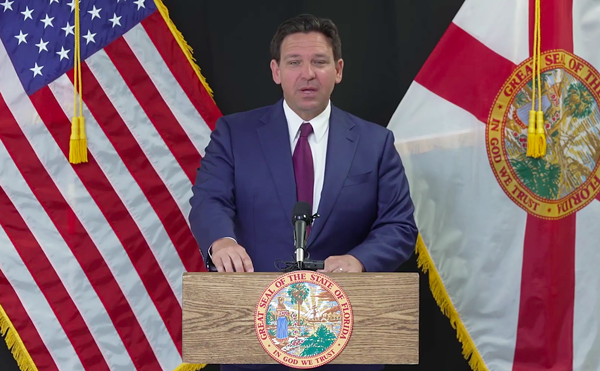
The poor souls chosen for jury duty in the trial of Sami Al-Arian and his co-defendants were sent home - after their first month of trying to stay awake through some mind-numbingly dull testimony - with some light reading over the Fourth of July week holiday: the 37-page manifesto of the Palestinian Islamic Jihad."In the name of God the most graceful and merciful, The Internal By-Laws," the PIJ treatise begins.
Government Exhibit No. 400 details the political aims and methods of the terrorist organization that is at the center of the trial that alleges that Al-Arian, a former University of South Florida professor, was the head of Islamic Jihad in America.
Judge James S. Moody Jr. gave jurors the entire week off. You can just picture them at the beach, with a fruity drink complete with cocktail umbrella, reading the PIJ charter. One of its "specific goals (provisional): The creation of a psychological barrier between the Jews and the Muslim Palestinian people and the creation of a conviction that the coexistence is impossible, and resisting the heralds of the idea of Arab-Israeli coexistence." Or try this passage, "Blood is the dower for freedom." Or the obligations of field leadership being "secrecy and concealment regarding the secrets of the Movement and the protection of these secrets more than the self-protection or the protection of money or a son …."
James Patterson's latest potboiler it ain't. But at least it's a bit more sensational than anything else the jurors have had to endure.
In its first month, the trial has produced more boredom than bombshell. These snippets from news coverage: "A few jurors nodded off"; "Testimony in Al-Arian trial begins with a few yawns"; and Moody warned a prosecutor to conduct his questioning of witnesses more quickly or else bring some No-Doz for jurors.
Things are so slow for the media, in fact, that there was talk about finding other courthouse chores for the young journalist hired by a dozen local news organizations to receive and copy the daily dump of evidence.
The fact that a fairly complex 37-page charter for a Middle Eastern terrorist organization is among the highlights of the case so far shows just how much this expected-high-profile trial has fizzled. On its first day, the trial drew press from all over the world and two separate protests. On the last day of testimony before the Independence Day break, there were plenty of seats available in the small courtroom on Florida Avenue in downtown Tampa.
The manifesto was discovered during a 1995 search of the offices of the World and Islam Studies Enterprise, a think tank connected to USF and founded by Al-Arian. One of his co-defendants, Sameeh Hammoudeh, worked at WISE.
The document, like much in the case so far, provides tantalizing details about the inside workings of terror but does little (or nothing) to directly link the defendants to terrorism. Moody warned jurors, for instance, that simply having a copy of the PIJ manifesto didn't mean Al-Arian, Hammoudeh, Hatem Fariz or Ghassan Ballut were members of the terrorist organization or even subscribed to the beliefs contained in the charter. Moody acknowledged what defense attorneys have previously said about much of the evidence in the case: it might have been at WISE for the purpose of scholarly studies.
Prosecutors hope jurors will zero in on the manifesto's section on finance. They allege that Al-Arian and his colleagues conducted an "economic jihad," raising money that - while not directly used for bombings and murderers - provided assistance for those terror attacks to occur.
If the defense took all the losses before the trial started (the biggest being the failure to win a change of venue because of highly prejudicial media coverage) the prosecution has fared worse since the start of testimony. Prosecutors have been barred from introducing some evidence that the defendants viewed Islamic Jihad websites on their computers.
The length of the trial has been pared after defense and prosecution lawyers agreed to summarize the details of 14 terrorist killings, rendering moot the expected gory detailed accounts of Israeli survivors, victims' families and law enforcement officials. Prosecutors are fighting Moody's attempts to get them similarly to summarize three other terrorist attacks they insist are at the heart of their conspiracy case.
Because of the decision to eschew the graphic testimony from the Israelis, the trial now could last just four months instead of the previously expected six to nine months. That means we could be 25 percent of the way to a verdict.















